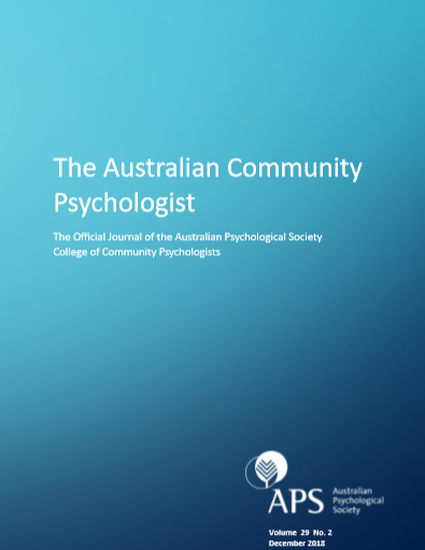
Article
Resituating masculinity and power in preventing child sexual abuse
Australian Community Psychologist
(2016)
Abstract
While attempts to address the perpetration of child sexual abuse often reduce focus to individual, psychopathological and actuarial levels of analysis in psychology, contextual understandings of gendered power relations are largely unexamined. A statistical focus on the prevalence and risk of sex offenders to the community excludes critical, contextual and discursive understandings of how masculinity is practised and how it contributes to men’s sexual offending. Through locating issues of child sexual abuse within hegemonic institutional and social power relations of masculinity, we challenge dominant reductionist positionings of the offender to simplified constructs of deviancy and abnormality. We present two case studies of the experiences of men who were child sex offenders, interviewed as part of a wider study. In investigating their narratives, we examine their experiences of power and powerlessness, and the discursive resources available to them, determined through their socio-political contexts, which influenced their masculine identities, practices, and subsequent offending. Questioning masculinity as a socially determined practice of power and powerlessness opened a space for the men to become reflective of how their community contexts confirmed their gendered practices that led to sexual offending. Such insights could create transformative possibilities and interventions that could prevent child sex offending.
Keywords
- masculinity,
- narrative
Disciplines
Publication Date
Winter August, 2016
Citation Information
Mowat, K., Coombes, L. & Busch, R. (2016). Resituating masculinity and power in preventing child sexual abuse. The Australian Community Psychologist, 28(1), 25-46. Retrieved from https://groups.psychology.org.au/Assets/Files/Mowat-ACP-28-1-2016.pdf
